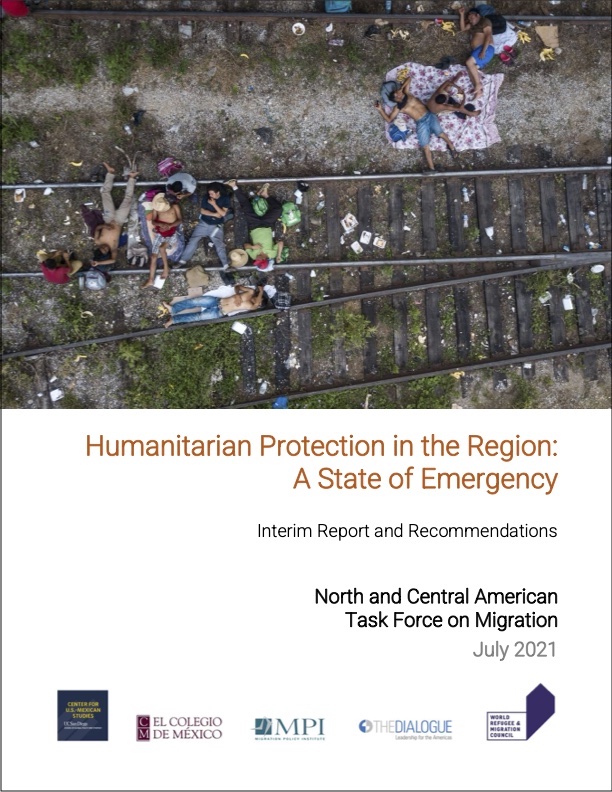Interim Report and Recommendations — North and Central American Task Force on Migration

The North and Central American Task Force on Migration was established to provide bold ideas for a comprehensive approach to Central American migration within a broader regional context. While much of the Task Force’s work will focus on deeper causes of migration, including economic and environmental drivers, the urgency of protection needs in the region, exacerbated by the COVID-19 pandemic and back-to-back hurricanes, has led us to consider humanitarian protection in the region as our first issue. We suggest a layered, point-to-point approach to providing protection in the region — working to increase the protection of people in their own communities, when they are displaced within their countries, when transiting through other countries and when they seek protection in neighboring countries.
While it is the responsibility of governments to protect their citizens, when they are unable or unwilling to do so, civil society plays a central role in protecting people at risk and providing needed assistance. The Task Force affirms that civil society is indispensable to addressing these issues and we urge governments to recognize their strengths as an expression of democratic governance.
In looking at humanitarian protection in the region, we focused on four dimensions, providing recommendations in each of these areas for governments, civil society and international actors.
- Protection of women, children and other groups at greatest risk in Central America and Mexico. Given the high levels of threats against women and children, we call for the development of a Central American women’s consortium to take the lead in developing strategies and implementing programs to support women and children. We call on governments and civil society to take additional actions to protect women and children, including the immediate deployment of regional observer missions on child protection.
- Greater attention to internal displacement. While cross-border migrants receive considerable attention, internally displaced persons (IDPs) are almost invisible and we call on governments in the region to develop and implement policies to protect and support IDPs and on international actors to protect and support civil society organizations working with IDPs and other victims of violence.
- Strengthening asylum laws and capacity throughout the region. We call on all governments in the region to review and update their laws and regulations on asylum and to support those offices with necessary staffing and funding. We urge the US and Canadian governments to immediately make exceptions to existing COVID-related policies in order for asylum-seekers to enter their territories. Refugee-led and civil society organizations must be included in policy-making processes on asylum.
- Protecting migrants in transit. Given the danger of the journeys, we call on governments of all countries through which migrants transit to take every possible step to ensure their safety (including access to COVID-19 vaccines) and urge continued support of civil society efforts to protect migrants en route.
Protecting people in the region is one step that can and should be taken now. Addressing the longer-term issues of poverty, governance, gangs, environmental change, corruption are all essential to reducing the need for large numbers of people to leave their countries. These issues will be addressed by the Task Force in later actions. Until these deeper causes are addressed, it is likely that many Central Americans will continue to feel the need to leave their countries.
The North and Central American Task Force on Migration is a non-governmental forum of academics, civil society and business leaders, and former policymakers in dialogue with current government officials created to facilitate a broadly driven solution dialogue among the countries involved in the crisis of migration and forced displacement in the region. Initiated by the World Refugee & Migration Council with the Center for U.S.-Mexican Studies, El Colegio de México, the Migration Policy Institute and the Inter-American Dialogue, the task force will issue concrete recommendations for collective, regional action based on evidentiary research to promote responsibility sharing across North and Central America.

